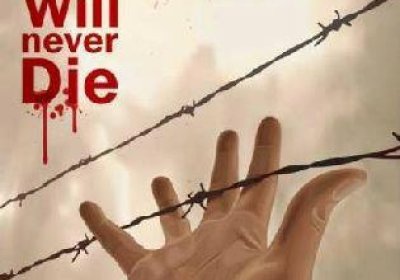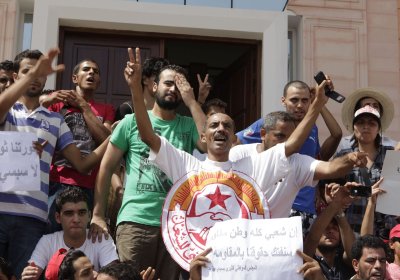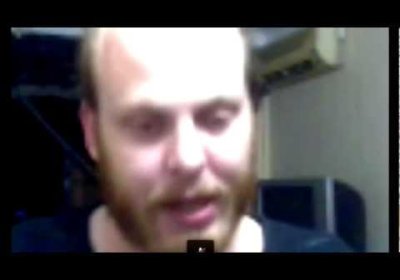More than 150 people protested at Parramatta town hall on November 15, calling for a boycott of Max Brenner chocolate shops and an end to Israel's recent attacks on Gaza.
The rally was part of the worldwide campaign for boycott, divestments and sanctions (BDS) against Israel. Max Brenner's parent company, the Israeli Strauss Group, donates care packages of chocolates to Israeli commandos of the Golani and Givati brigades.
Patrick Harrison
Israel has launched a fresh full-scale war on the besieged people of Gaza. The Palestine In My Eyes website is detailed the names and ages of those killed in Israel's latest bombardment. As of the morning of November 20, 108 Palestinians were listed as killed.
At an October 31 demonstration at University of Sydney, Aboriginal students and their supporters rallied to demand the university’s Koori Centre remain open and won important concessions from the university management.
Despite officially acknowledging the Cadigal people of the Eora nation, on whose land the university was built, the administration has pushed ahead with a new strategy for Indigenous education despite serious concerns raised by the students.
Almost a year since Tunisia's Constituent Assembly (CA) elections, Islamist party Ennahda, leader of the coalition government, continues to lose the confidence of those who rose up against dictator Zine el-Abidine Ben Ali in late 2010.
Anger was prompted by Constitutional Article 27, which was passed by the Committee on Rights and Freedoms on August 1, defining women's rights as "complementary" to those of men, placing women "at the heart of the family and as man's associate".
The attacks on tertiary education around Australia continue to escalate. The University of Wollongong has announced it would reduce the current 11 faculties into five “super-faculties” as part of a five-year plan aimed at putting the university in the “top 1%” of global institutions.
'Palestinians must unite to tackle the occupation'
Shamikh Badra is the youth and students coordinator for the Palestinian People Party (PPP) in the Palestinian Gaza Strip. The PPP is a left-wing, secular party that is part of the Palestinian liberation movement. Badra is on a tour of Australia to speak about the situation in Gaza and Palestine's struggle for justice. Green Left Weekly’s Patrick Harrison spoke to Badra.
* * *
As semester two begins at the University of Sydney, it’s worth reflecting on what student activists have learned so far in our campaigns this year.
We've learned that our university is being managed in line with the profits-first agenda of the 1% that run the government and the economy. We've learned that under Vice-Chancellor Michael Spence, corporate research partners and “good economic management” take priority over students, staff and society.
The University of Sydney Student Representative Council (SRC) has condemned university management’s plans to “dismantle” the Koori Centre, which has supported Aboriginal and Torres Strait Islander students at the university since 1989.
The Koori Centre also coordinates the teaching of Indigenous Studies.
The university says the Koori Centre’s functions will be incorporated into a broader “Centre for Cultural Competencies”. Management has assured staff no jobs will be lost in the process, but many students and staff feel that have been inadequately consulted about the changes.
Mohamed Morsi, the Muslim Brotherhood candidate for Egypt's presidential elections, was sworn into office on June 30. But confirmation of Morsi's win was overshadowed by protests and sit-ins at Cairo's Tahrir Square and around the country.
Protesters are demanding the elected parliament be restored and extra constitutional powers the ruling junta has granted itself be rescinded.
The electoral comission announced on June 24 that Morsi had beaten old-regime candidate Ahmed Shafiq in the June 16 and 17 poll with 51.7% of the vote.
Official results were yet to be announced on June 24, but it appears Muhammad Morsi, the Islamist Muslim Brotherhood (MB) candidate, has won the second round of Egypt's presidential elections, held over June 16 and 17.
The election took place amid huge protests in Tahrir Square and around the country against moves by the ruling Supreme Council of Armed Forces (SCAF) to dissolve Egypt's elected parliament.
Austin Mackell, an Australian journalist based in Cairo who has reported on the Egyptian revolution, speaks about his arrest by the regime, and Egyptian politics around the elections.
Egypt's second-round presidential elections between ex-regime figure Ahmed Shafiq and Muslim Brotherhood candidate Mohamed Morsi will go ahead after the High Constitutional Court (HCC) ruled on June 14 that Shafiq's candidacy was constitutional.
The ruling declared that the Political Disenfanchisement Law, which barred ex-members of Mubarak's National Democratic Party (NDP) from holding high government offices, was unconstitional.
- Previous page
- Page 3
- Next page






